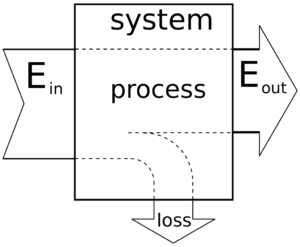Biological Conversion of Solar Energy Advantages and Disadvantages
In this article we will learn about the Biological conversion of solar energy advantages and disadvantages. We will discuss in details about the basic advantages and disadvantages of biological conversion of solar energy .

Biological Conversion of Solar Energy Advantages and Disadvantages
Now we are going to discuss about the biological conversion of solar energy advantages and disadvantages.
Biological Conversion of Solar Energy Advantages
These are some basic advantages of biological conversion of solar energy.
- The biological system could be operated at low physiological temperature as opposed to the normally high temperature required for chemical or physical production of energy.
- The only major input to the system would be solar energy, which is free of cost.
- The production of energy would not involve the formation of pollutants, as in he cost of fossil fuel refineries.
- The fuel produced, mainly H2 gas is clean burning (i.e., yielding H2O).
- Biological conversion serves as a source of high value bio-products, which can be useful in food and synthetic chemistry industries.
- A mixture of bacteria tailored to maximize sunlight absorption can be used to improve efficiency. This level of adaptability is one of the advantages of biological conversion of solar energy. These are Biological conversion of solar energy advantages and disadvantages.

Biological Conversion of Solar Energy Disadvantages
- The efficiency of biological conversion is low. There are no biological conversion methods that are even close to being competitive with other methods.
- Relatively low overall efficiency would require large surface areas for harvesting and conversion of sunlight.
- Although biological processes for the production of gaseous and liquid fuels are well demonstrated, these processes must still be integrated into a system capable of meeting basic requirements for overall efficiency of converting solar energy into biofuels.
- A model system must at least in principle be capable of easy scale-up and not be limited by either engineering or economic factors.
- Even if efficient conversion on a large scale is achieved, storage presents a problem.
- Access to solar energy is interrupted by natural cycles of day-night, cloudy-sunny and winter-summer variation that are often out of phase with energy demand.
- Biological conversion is still in infancy. Factors like production cost (both financial and in resource), durability and stability and safety of operation, can more than efficiency, determine the success or failure, these are other such factors are yet to be evaluated on a large scale.

Hence these are Biological conversion of solar energy advantages and disadvantages. We have studied about the limitation of biological conversion of solar energy . If you will find any incorrect in above article please comment in comment box.